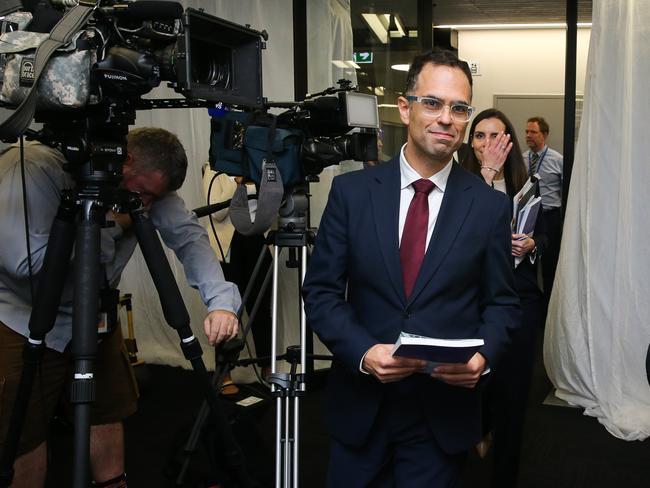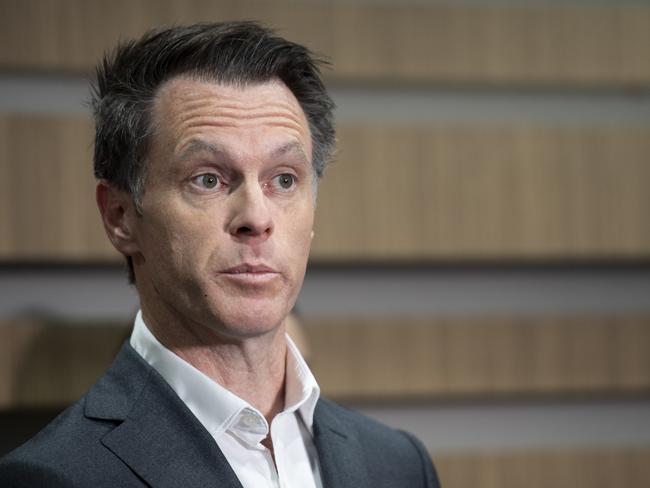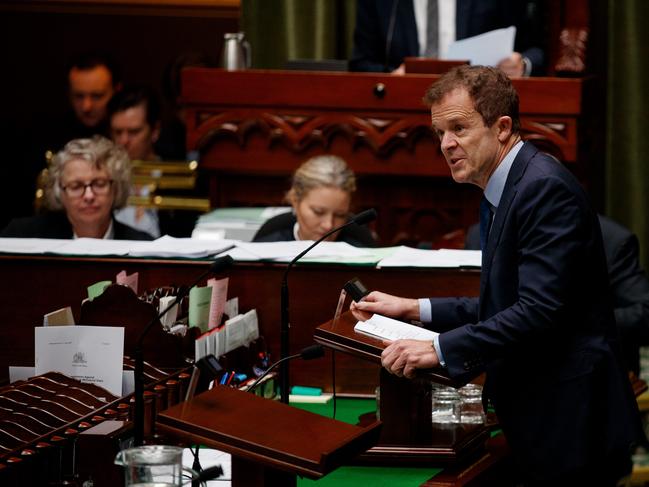Public sector wages could blow out due to union deals, budget warns
The government has budgeted for a 10.5 per cent pay rise but unions are demanding more — and the cost to the state’s budget bottom line is unknown.
NSW
Don't miss out on the headlines from NSW. Followed categories will be added to My News.
Budget forecasts could be blown apart by wage negotiations with public sector unions, with NSW Treasury warning that a new Industrial Relations umpire will have an “unknown” impact on the budget bottom line.
An appendix in the budget papers has revealed that employee expenses are a major “risk” facing the state’s economy.
The warning comes amid revelations that infrastructure spending will fall over the next four years, even as the government’s debt as a percentage of the state’s economy increases to record levels.
The government’s wage bill is expected to grow at 3.2 per cent per year, up to $52.4bn in 2027-28.
Adding superannuation, employee expenses will come to $58.8bn by June 2028, amounting to 45.5 per cent of all government spending.

However, The Daily Telegraph can now reveal a stark warning from NSW Treasury that the number could be even higher.
“The final industrial agreement outcomes may vary from employee expense forecasts,” the budget appendix says, warning of “additional costs” including if union “productivity” reforms “come with upfront costs”.

Further, the budget notes that changes to the industrial relations umpire — and the removal of the wages cap — could lead to “unknown” budget impacts: “As the scope of any decision by the Commission or the Court is unknown, the impact on the Budget is also unknown.”
“Budget forecasts may need to be updated to reflect variations to employee expenses that arise from negotiation of final industrial agreements and/or decisions by the Commission or the Court,” the budget appendix says.
The wage costs assumed in the budget are based on public sector workers getting a 10.5 per cent pay rise over four years.
However, a number of unions have already knocked back that offer and demanded more.
Industrial Relations Minister Sophie Cotsis told parliament on Wednesday that the 10.5 per cent offer was a “baseline to negotiate”.

In his budget-in-reply speech, Liberal Leader Mark Speakman called the government’s wage policy a “massive liability our state simply can’t afford”, saying: “The government still won’t come clean on the true cost of its union wage deals.”
Premier Chris Minns said that if Mr Speakman thought the current offer was too high, he should “explain to 400,000 families what (his) plans are”.
“We’ve made what we think is a fair offer … if the Opposition believes that’s too much, (then) what’s their number?”
Unions NSW boss Mark Morey said a return to the Coalition’s wage cap would fuel an exodus of essential workers.
“The Liberals have established a clear choice. If we return to their path of wage suppression it means classrooms without teachers, hospitals without health workers and triple-0 calls going unanswered,” he said.
Mr Speakman also accused the government of having “no vision for infrastructure” beyond the pipeline already announced under the former government.
The budget papers show that the amount of money spent on infrastructure in 2027-28 will be 12 per cent less than the cash expected to go out the door next financial year.
Transport spending will fall by 34 per cent, and education spending is down 41 per cent.
Do you have a story for The Daily Telegraph? Message 0481 056 618 or email tips@dailytelegraph.com.au





